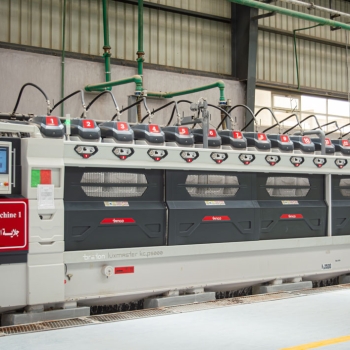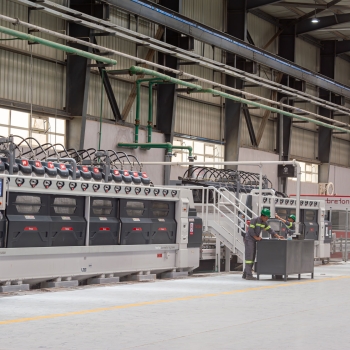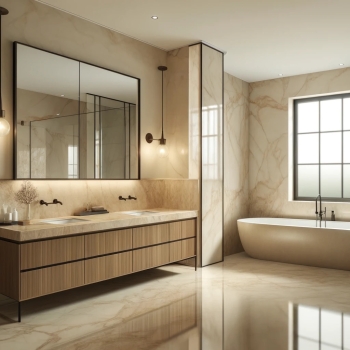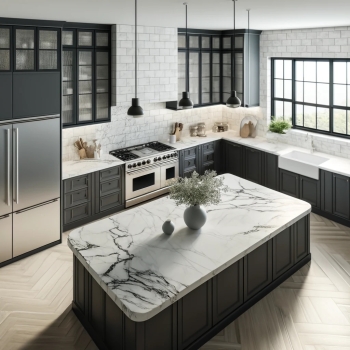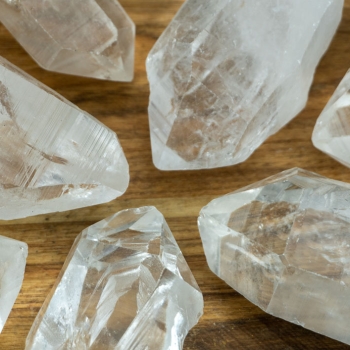
Quartz: An Overview
Quartz is one of the most abundant minerals on Earth, known for its remarkable properties and wide range of applications. It is a crystalline form of silicon dioxide (SiO₂) and is prized for its hardness, chemical stability, and beautiful appearance. Quartz can be found in various forms, including natural crystal, powder, and slabs, each serving different purposes in industrial and commercial applications.
Quartz Powder
Properties and Production: Quartz powder is a finely ground form of quartz that retains all the mineral’s inherent qualities. It is produced through the mining of natural quartz crystals, followed by crushing, grinding, and purification processes. The result is a high-purity powder with a consistent particle size distribution.
Applications:
- Industrial Uses: Quartz powder is used extensively in various industries due to its high purity and chemical inertness. It is a key ingredient in the production of glass, ceramics, and refractory materials. Its high melting point and resistance to thermal shock make it ideal for these applications.
- Electronics: In the electronics industry, quartz powder is used in the manufacture of silicon wafers, which are essential for semiconductor devices. Its electrical properties make it suitable for use in precision instruments and high-frequency applications.
- Construction: Quartz powder is also employed in construction materials, including high-performance concrete and mortar. Its fine particles enhance the strength and durability of these materials, providing better resistance to wear and environmental conditions.
- Cosmetics and Pharmaceuticals: Due to its non-toxic nature, quartz powder is used in cosmetics as a gentle exfoliant and in pharmaceuticals as an inert filler.
Quartz Slabs
Properties and Production: Quartz slabs are engineered stone products made from natural quartz crystals combined with resins and pigments. The production process involves mixing crushed quartz with binding agents, compressing the mixture into slabs, and curing them to achieve the desired hardness and finish. The resulting slabs are incredibly durable, non-porous, and available in a wide variety of colors and patterns.
Applications:
- Countertops: Quartz slabs are most commonly used for kitchen and bathroom countertops. Their non-porous nature makes them resistant to stains, bacteria, and scratches, offering a low-maintenance and hygienic surface. The wide range of design options allows homeowners to choose styles that match their aesthetic preferences.
- Flooring: Quartz slabs are also used for flooring in both residential and commercial spaces. Their durability and resistance to wear make them suitable for high-traffic areas. Additionally, the variety of finishes available, from polished to matte, provides design flexibility.
- Wall Cladding: In modern architecture, quartz slabs are employed for wall cladding, providing a sleek and contemporary look. Their resistance to weathering and UV radiation makes them suitable for both interior and exterior applications.
- Furniture and Decorative Elements: Beyond traditional uses, quartz slabs are increasingly being used to create custom furniture pieces and decorative elements, such as tabletops, shelves, and fireplace surrounds. Their strength and aesthetic appeal make them a popular choice among designers.
Advantages:
- Durability: Quartz slabs are known for their exceptional hardness, second only to diamond, making them highly resistant to scratches and impact.
- Non-Porous: The non-porous surface prevents the absorption of liquids, reducing the risk of stains and making cleaning easier.
- Aesthetic Variety: Quartz slabs offer a wide range of colors, patterns, and finishes, providing versatile design options for any project.
- Low Maintenance: Unlike natural stone, quartz slabs do not require sealing and are easy to maintain, making them a practical choice for busy households and commercial spaces.
Conclusion
Quartz, in its various forms, is a versatile and valuable material used across multiple industries. Quartz powder is essential for industrial, electronic, construction, and cosmetic applications due to its purity and chemical properties. Quartz slabs, on the other hand, are prized for their durability, non-porous nature, and aesthetic versatility, making them an ideal choice for countertops, flooring, wall cladding, and more. Understanding the unique properties and applications of quartz products allows for informed decisions in both industrial and design contexts.


